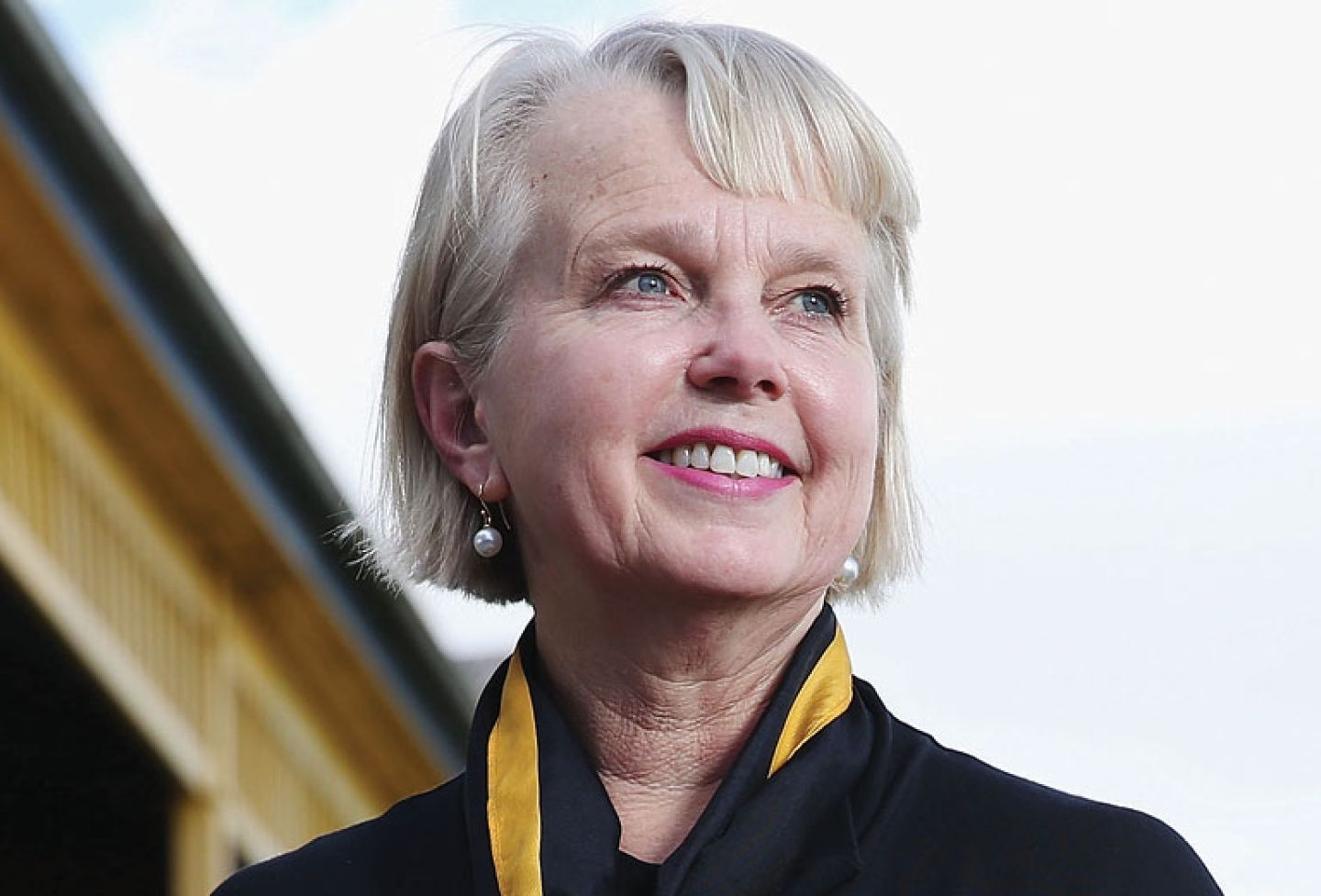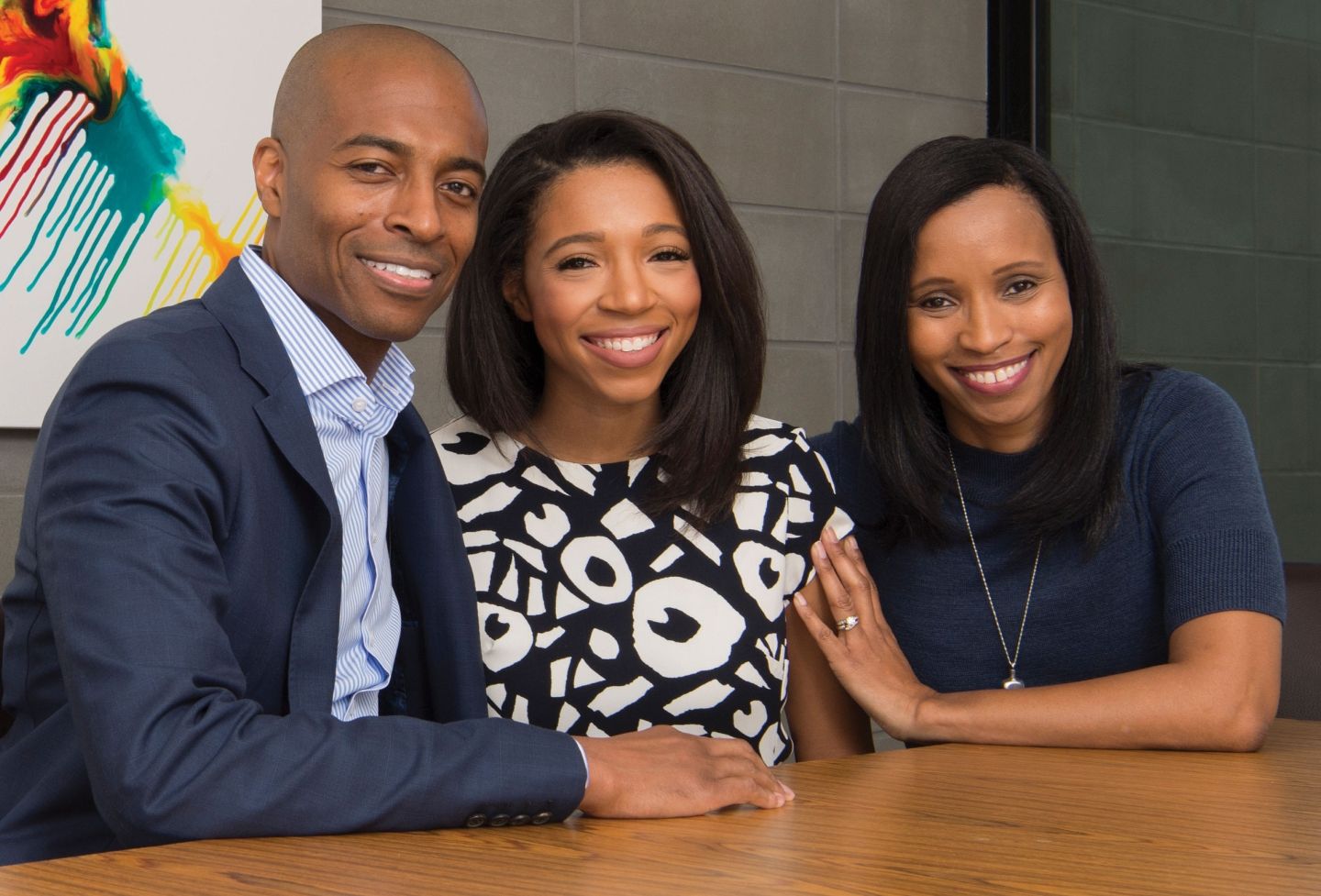Linda Gordon Howard ’73 was the first black student and the first female student to become the law school’s student council president.
After establishing her career in public service and academia, she went on to write a book on how to prevent another #MeToo — before the movement even happened.
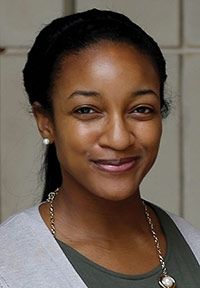
Howard recently spoke to Jianne McDonald ’19, this year’s Black Law Students Association president, about some of the highlights of her time at UVA Law and after. What follows is a lightly edited transcript, condensed for length.
Could you tell me about what your life was like growing up in Virginia in the 1950s and ’60s?
I grew up in Ettrick, Virginia, the home of Virginia State College — now Virginia State University. It’s a historically black college, a land-grant college. I was the child of a professor at the college, and subsequently my mother became a teacher at the elementary school that was run by the college, and later a professor. So I and my fellow classmates had an educational experience that was unusual for young black kids of the time because we had a state-of-the-art education available to us. But it was a different and delightful upbringing. And surrounding us, of course, was a white community. My upbringing was very much in a black-only environment.
When did you decide you wanted to be a lawyer?
I think that I was about 9 years old, somewhere in the third or fourth grade. If you remember back to those days, you’d be playing a game of some kind, and the game would devolve into an argument. Whether it was over somebody cheating or the rules or a leftover argument from lunch time, whatever it was, I often played the role of the broker, the dispute resolver. I was interested in those dynamics. Dynamics is not a word that a third-grader would use, but I was interested in what happened there. And I loved that it was possible to get the game back on track. Somehow, I associated that with being a lawyer.
Why did you choose UVA?
Where else would a Virginian go to law school? [laughs] It was — my gosh — a top-rated, national law school where I could go for in-state tuition.
What were your first impressions of the Law School?
Well, when I went to law school, we were in Clark Hall. The current law school opened not that long after I left. The murals in Mural Hall were pretty surprising and delightful, with the classical portraits of nearly nude people. I said, “OK, great, I get it.” I [also] clearly remember walking into the law library and saying to myself, I’m finally here. After all those years of wanting to be in law school, I think the sight of the law library and the students there studying, and all of those law books, just impressed me so much.
What was life like as one of the few black law students here?
I had an expectation of a law school of the caliber of the University of Virginia having a larger cadre of black law professors. Where I thought they were going to get them, I don’t know. But that was something that I noticed was definitely missing. And I recall a specific encounter in my property class. We were talking about laws relating to public housing, and the regulations, you know, what would work for providing housing in poor neighborhoods. I asked the questions: Who’s going to present this to the black community? How do we know that the black community’s going to listen to you? There was a human element to the conversation that, for me, was missing. And that was a notable conversation.
Read More
- The Long Walk: How Gregory Swanson Integrated UVA and UVA Law
- Saying ‘No’ to Wall Street and ‘Yes’ to the NAACP Legal Defense Fund: Elaine Jones ’70
- Black Law Students Mattered: BALSA's Impact
- One Student’s Debt: Alfonso Carney Jr. ’74
- Erasing the Color Line: Ted Small ’92 Looks Back on SUPRA
- The Great Indoors: REI General Counsel Wilma Wallace ’89
- The Jacksons’ Judicial Philosophy: Raymond ’73 and Gwendolyn Jackson ’72
- Generation Next: The Phipps Family
- Standard-bearers: Outstanding Black Alumni
You became student council president at the law school. What was that experience like for you?
I had all these great ideas for what we could do at the Law School. This was before the election, and I had a meeting with the dean. After presenting my good ideas, the dean asked me how many students I represented. Well, I didn’t represent any students; I represented myself. I had some good ideas, and he said, look, everybody’s got good ideas. And, you know, yours are just as good as anybody else’s. Well, a few weeks later, I said, “I represent all the students and this is what we want.”
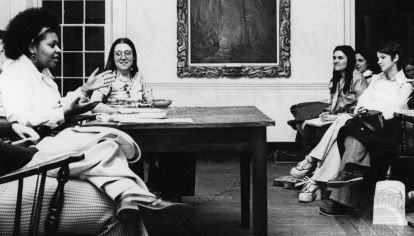
Howard and Catherine B. Tackney '76 discuss "Women in Law" at Jefferson Hall (Hotel C) on Main Grounds' West Range in 1973. Photo by Virginia Law Weekly
So it was a privilege, truly a privilege, to be able to speak on behalf of the students.
Another thing was the ability to actually change some things about how the Law School operated. One of those was socially. Before I was president of the Law School, having a beer or a glass of wine on Law Grounds was something that had not happened, was not going to happen, and we were told was not possible. And it wasn’t that I wanted to drink beer at the Law School. That was not the point. The point was that the Law School was very socially segregated. There were, as you well know, very wealthy students at the school and they socialized together. Some faculty members would often socialize with them. The other students would socialize with each other. And it was at the University of Virginia that I, for the first time, heard somebody refer to himself as “poor white trash.”
What I wanted and what I was committed to was that we were all one body. Faculty and students. That was one of my planks of my platform.
It took many conversations with the dean, many conversations with the University administration. It took conversations with local law enforcement — they were concerned with people drinking and then getting in their cars and driving. The Law School had to be declared a private location for the period of the party. It was incredibly complicated.
However, on March 17, 1972, we had a St. Patrick’s Day party in Mural Hall to which all the students and all the faculty were invited, and we served green beer. For me it was really bringing together the law students and the faculty in a social commonality such that everyone had a sense of belonging. And that was my intention.
Did you enjoy your first job? What did you do day-to-day?
I did legal research on legal questions. The Urban Mass Transportation Administration provided grants to local governments to pay for bus and train systems. So it paid for the train system in Atlanta. It paid for part of BART in San Francisco. One of my first assignments was to participate on the first federal task force on the rights of disabled citizens. The task force was charged with coming up with regulations related to access of disabled people to train systems. And we talked about the subway system in New York — there weren’t any elevators, there weren’t escalators or any of what’s there now. And the question was: What was going to be required of New York City to implement this new Americans with Disabilities Act that had been passed the year before [1972]? So that was one thing that I participated in.
From time to time, we’d get a question from the White House that needed to be researched and responded to. It was quite varied, which I enjoyed. And I thought that mass transportation systems were just so relevant to people’s lives in cities that I thought the work that we did mattered.
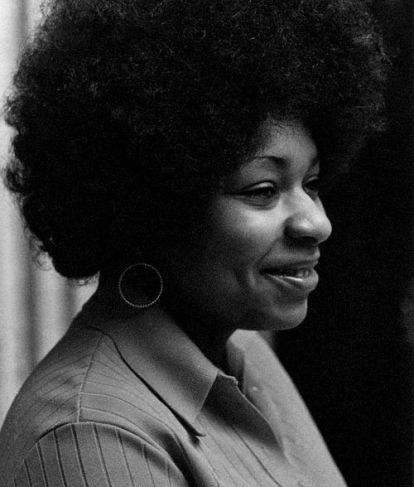
Howard in a photo taken by the Virginia Law Weekly in 1972. Photo by Ken Ahl/UVA Law Library
What inspired you to write “The Sexual Harassment Handbook?”
[Howard authored the book in 2007 based on her experience teaching sex-based discrimination law at Ohio State University, writing the sexual harassment policy as counsel to the president of Hunter College, and developing and conducting training for the New York City Law Department.] I wanted to write a book about sexual harassment that anyone could read and — that is, that men could read. Because most of the books of the time that I’d seen, or the conversation, was really calling men the enemy. And in my view, it required the whole of the workforce — that men were required to solve this issue of sexual harassment. So I set out to write that book, to cause a conversation, to create a common ground on which a conversation could be had. I wanted to provide a new context. And so that’s why I wrote a book, and it was published in 2007.
What do you think about the #MeToo movement bringing these types of issues to the fore?
Well, the chief thing that the #MeToo movement is providing is women speaking up and women saying what has happened to them, and that’s critical. Most sexual harassment is not reported. Most women — at least up until now — have kept this to themselves.
Yes, women do need to be heard as credible. The difficulty — and I’m not sure how we’re going to resolve this — is that when you’re in a workplace setting, or when you have an administrative complaint, or when you have a lawsuit, there [needs to be] a forum in which the target of the action and the actor can be heard, and there [needs to be] someone with authority to make a determination as to what happened — make a determination as to whether there was sexual harassment and come up with some kind of remedy. You can do that inside of an institution.
I think our challenge is that once you’re outside of an institution, once the person’s not working there anymore, or if the person’s not an employee, or the applicable statutes of limitations have expired, we want to hold people to account for their actions, but what we don’t have is a larger and broader social forum. Right now, it’s the media. And God bless them, but, A, they’re not equipped to determine what happened; B, it’s not their job; and, C, if we want to endow them with that ability, then we should just say that.
But there is a larger conversation. It’s out in the open now. People are talking about it. What I’m hoping is that people are now empowered when somebody acts inappropriately with them to say something at the time.
Howard’s Career
Staff Attorney and Special Assistant to the general counsel of the Urban Mass Transportation Administration in the U.S. Department of Transportation, 1973-74.
Legislative Assistant to U.S. Sen. Lloyd Bentsen, 1974-75.
Assistant and Associate Professor, Ohio State University Law School, 1975-80, tenured in 1978.
Executive Director, Interdepartmental Task Force on Women, White House, 1980-81.
Counsel to the President of Hunter College of the City University of New York, 1981-90.
Executive in the New York City Law Department, 1990-2003.
Assistant General Counsel, General Counsel and Vice President for Legal, Landmark Worldwide, San Francisco, 2010-present.


